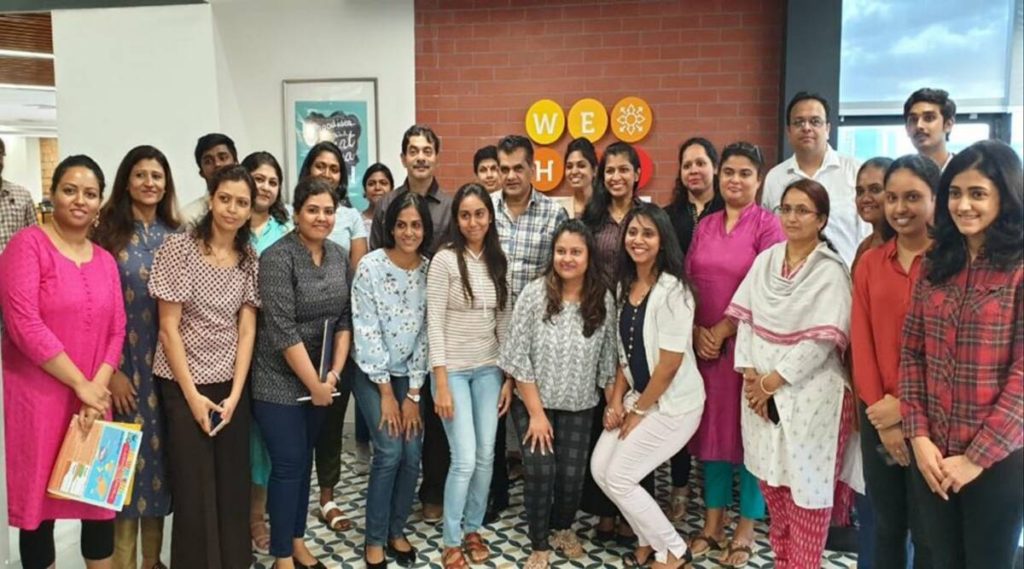At WeHub, enabling women as entrepreneurs has also led to the creation of solutions for problems specific to women.
On March 8, International Women’s Day, WeHub will mark three years of its existence.
The pandemic-induced-lockdown of last year has brought to light a new and evolved narrative of women entrepreneurship, one that involves merit and dignity, from Telangana.
When K Kavya Sirikonda, an electronics engineer from Teldarpally in Telangana’s Khammam district, decided to start a business it was not difficult for her to choose mushroom farming given her family background. She prepared a detailed project report, pitched her plan before the bankers, and succeeded. Through the COVID-19 pandemic season, when challenges of breakages in supply and distribution channels mounted on her, she turned it into an opportunity by scaling up and diversifying into pickle-making in addition to mushroom farming. For all the handholding through these difficult times, she credits WeHub, a special incubator and accelerator for women entrepreneurs.
On March 8, International Women’s Day, WeHub will mark three years of its existence. Since its inception, the initiative of the government of Telangana has engaged with 3427 women entrepreneurs, incubated 148 women-led start-ups, and supported 276 such startups across the ecosystem. Kavya is one of the incubatees from the 2019 cohort.
“When we talk of women being changemakers, we need to change the understanding and define what a woman entrepreneur is. Unfortunately, a woman who is selling sarees is bucketed with the woman who is trying to create something to tackle a virus or do something cutting-edge,” says Deepthi Ravula, CEO of WeHub.
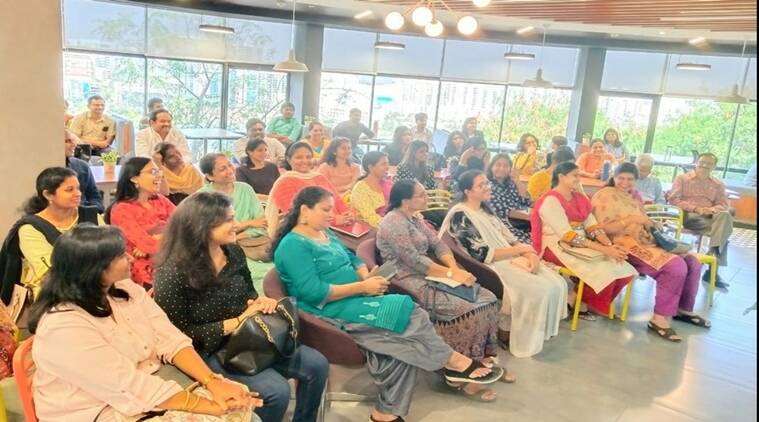
According to her, WeHub has its firm focus on helping women from all walks of life create an enterprise on their own merit, and build a strong foundation for being innovators. “Start-up is an enterprise plus innovation. We have amazing entrepreneurs. We have a Kiran Mazumdar-Shaw. How do we make more of them? So we have curated our services to create a platform where a woman across every stage of entrepreneurship is assisted and a separate programme focuses on women-led start-ups,” explains Ravula.
At WeHub, enabling women as entrepreneurs has also led to the creation of solutions for problems specific to women. For instance, Komal Baldwa, founder of Bleu Condoms, now manufactures natural latex condoms that are free from parabens, glycerine, and artificial flavours. Ravula calls it a cutting edge idea that is going to beautifully impact the lives of many men and women. “Not only that no one thought of it so far, but also the women who faced problems never wanted to act. Komal is trying to fix it for everyone else,” she says.
Komal says she has been a sufferer herself. Speaking to gynaecologists about vaginal rashes, itching and burning, evoked no positive outcomes for her. A bit of research into the subject helped her understand that the problem was indeed real and the cause of her misery was condoms. “The focus has been only on men’s pleasure while ignoring the issues concerning the partner involved or the very basic idea of contraception. After talking to friends and family, I realised that a lot of women are suffering and they have taken it as part of their life,” she explains. Bleu was born out of this specific aspect of women’s health and contraception. She started selling condoms in December 2019. While the pandemic and the lockdown that followed struck most businesses, Komal says it gave her a much-needed break to gain expertise on digital marketing.
Twenty-five-year-old Monika Jha, an Electrical and Electronics Engineering graduate from Bengaluru, is another incubatee of WeHub who followed through to find a solution to something as basic as lack of adequate lighting on city stretches that prevented many like her from stepping out of homes after dusk. To keep hearing that it was dark and hence late to step out in the evenings is something she found difficult to internalise throughout her life, she says. But digging further to study unlit or overly lit roads made her realise that there existed no lighting infrastructure mechanism or ideal specifications to be followed in the installation of street lighting. Cydee technologies, her start-up, offers street light fixtures with a higher dispersion angle to effectively reduce the number of luminaires required to illuminate a stretch of road by up to 60%, saving up to 30% energy consumption.
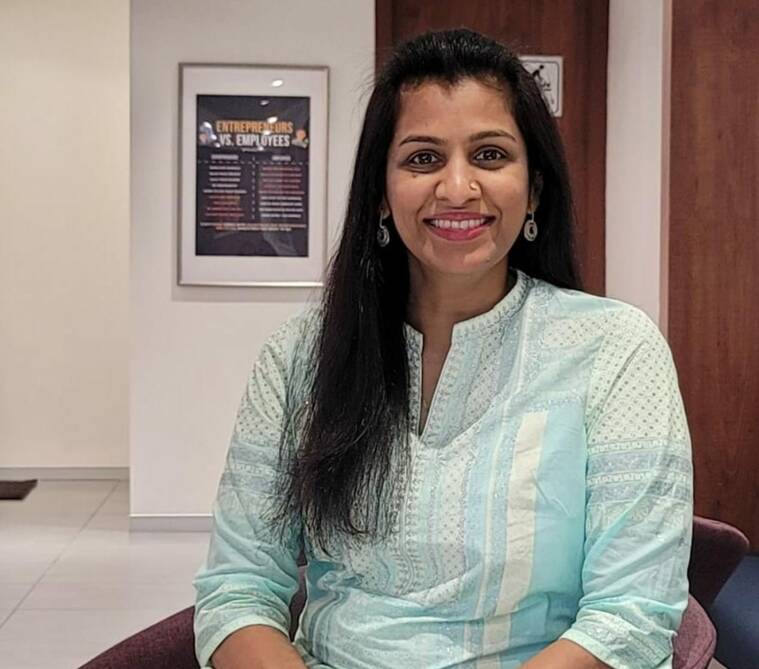
“Instead of lighting as a solution, street lighting is looked at as a product to be installed. The aesthetics of the pole and colour of light is a major concern and not the quality of illumination. The customisation required for different sites, different wattage of lights, lengths of poles, that kind of customisation is not being exercised here,” she says, adding “the basic necessity of lighting is forgotten in the process of bulk procurement.”
After piloting at a few sites, Monika says her focus is rural as well as tier-2 and tier-3 cities that need quality illumination. This, she believes, will provide her with a clean slate and an opportunity to showcase their full capabilities. While ensuring adequate lighting is only a first step, her start-up has worked out another model for road safety with IoT solutions as an extension to the street lighting project. “In 2021, our goal is to illuminate a 20million sqft area along with saving 20,000 tons of carbon emission,” she adds.
Even as the Covid-induced pandemic posed several challenges to budding entrepreneurs, it was a ‘happy coincidence’ for some. YuGenie, a start-up with WeHub in the current cohort, is nothing but a social network dedicated to social impact. And its need and purpose were most felt during the unprecedented lockdown months when individuals and voluntary organisations scrambled for a common platform to unite and serve humankind. Aashraya Rao, a 24-year-old mechanical engineer, says she has been thinking about YuGenie for a couple of years, as she herself faced the problem of not having a platform as a student for social giving.
“The social impact industry is huge but deeply disorganised and largely offline. We are not only trying to modernise or digitize it but also trying to get socially mindful millennials and Gen Z to collectively work with social organisations towards social impact. We are the first to leverage the power of networking in the social welfare space with a tailor-made platform that would enable organisations to build their network of future donors, create their brand, increase their digital visibility and explore collaborative opportunities,” says Aashraya, whose YuGenie was the only Indian start-up among 25 from across the world selected for Camp Everest, a start-up bootcamp in Silicon Valley this year.
An Android app is expected to be launched later this month. An individual or social organisation can sign up, and choose issues and causes of their preference. They are then connected to people, events, conversations, and organisations in the social impact industry in their vicinity and around the world based on their preferences. Explaining how the entire user experience related to social impact is fragmented, Aashraya says, “Our generation is mostly on Instagram, whereas social organisations are active on Facebook, and prominent personalities who can influence impact are on Twitter, while social giving is happening through crowd-funding platforms. Our idea is to bring all stakeholders on one platform for collaborative efforts to impact scale.”
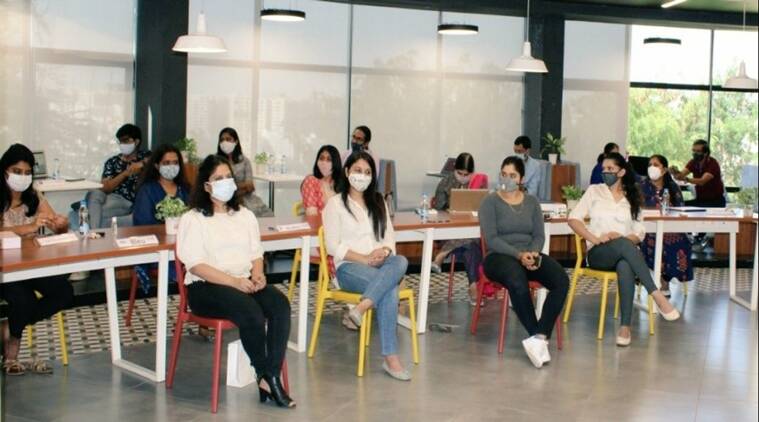
For 31-year-old Sahitya Raj, another incubatee with the WeHub’s social impact programme, the Covid-induced pandemic opened avenues of scaling up the business to the next stage. Sweet Tooth, her cloud kitchen baking unit that catered to a niche audience of Corporates and Airline companies with their specialised desserts and fusion sweets, was out of business as the nation-wide lockdown came into force. “Covid changed everything for me. With zero business and staff to take care of, it was not easy. I did have plans to enter retail someday, but had the pandemic not struck I would not have made this step for at least another two more years,” says Sahitya, who expanded her baking unit and tied up with an online grocery store big basket for sale of her bread, brownies, and cakes, etc. “I was into the luxury segment and without WeHub, I could not have joined the volume game.” Now, apart from her earlier customers in Corporates and Airlines, Sweet Tooth supplies bread, cakes, etc to cafes, restaurants, private parties, conventions, and caterers too.
WeHub’s partnership manager Ramya Madhavaram points out that it was necessary to hand hold entrepreneurs during the lockdown. This encouraged the team to put in additional efforts and help remodel the businesses to suit the challenges of the day. “We did not want them to lose their hope when they were up and going. Entrepreneurship is also about the challenges and we were globally in a challenging situation,” she says.
Amid lockdown months, as many as 555 women from across Telangana were trained on using video calls on WhatsApp and Google meet. For two weeks, the women with business ideas identified through respective district administrations were trained online on developing their project proposals and pitches.
Sruthi Niveditha, programme manager for social impact entrepreneurship programme that largely deals with women from rural backgrounds, says the team ensured during the screening process itself that women applicants knew as much or more than their male partners and had the drive in them to succeed. “There were challenges such as 40 percent did not have smartphones. Many of them had WhatsApp installed but had not used video calling. We worked with them along with the availability of their children,” she adds.
“As many as 89 women incubatees were selected from 555 applicants in the social impact programme this year. They were selected from 170 shortlisted candidates who pitched their ideas before the jury online. Their sessions too are now progressing online. Even in the urban tech entrepreneurship programme, we screened over 295 applications online during the lockdown. Eighty one applicants pitched their ideas and we have finally selected 26,” says Ravula. Crediting her team for ensuring that no entrepreneur dropped out of the programme in the wake of challenges posed by lockdown, she says “It is not what you do when everything is normal. How you step up as a team when things are not going well is what we learned as a team.”
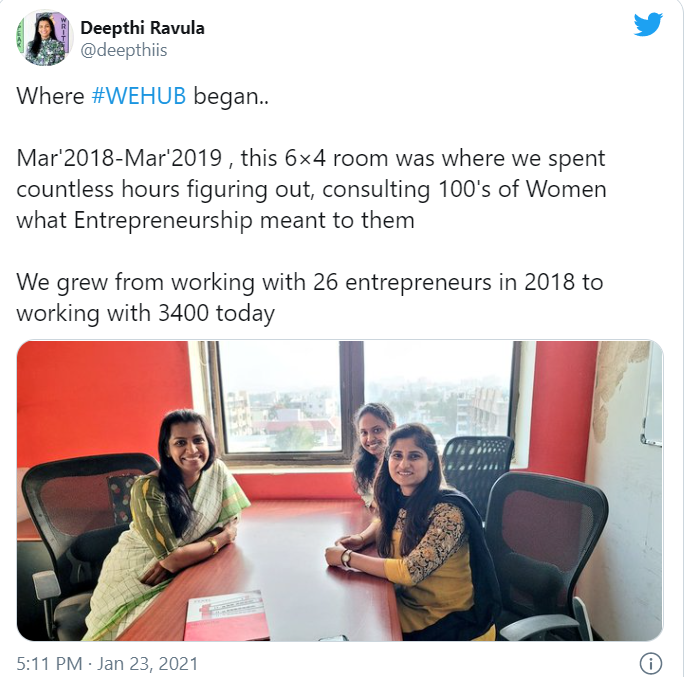
Article Credit: indianexpress.
